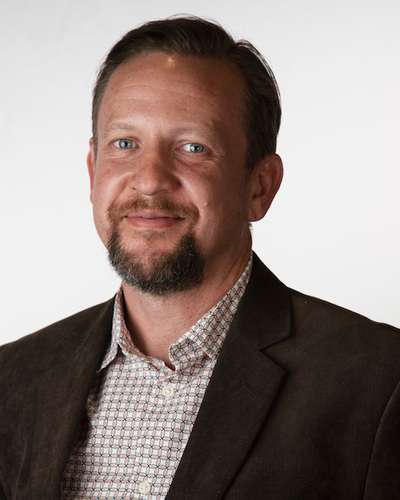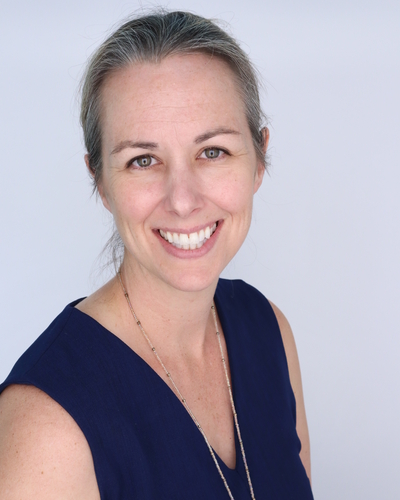
OCTOBER 1, 2024 — UTSA is partnering with Morgan’s Multi-Assistance Center (Morgan’s MAC) and Southern Methodist University to address the long-standing challenge of getting neurodiverse adults into the workforce. The program, titled Employ210, will receive $9 million over the next five years from the U.S. Department of Education to further the department’s goal to add youth and adults with disabilities to the 21st-century workforce.
Adults who are neurodiverse — people with a range of conditions and disorders including autism, attention deficit hyperactivity disorder, and intellectual or developmental disabilities — are disproportionately unemployed or underemployed. One study of adults with autism spectrum disorder showed that only around half had ever been employed. According to the U.S. Bureau of Labor Statistics, adults without disabilities were three times more likely to be employed than those with disabilities in 2023.
UTSA researchers John Davis and Leslie Neely from the UTSA College of Education and Human Development will take a novel approach to bridging this employment gap.
 John Davis
John Davis“Many neurodiverse adults have the skills and motivation to work, but they face unemployment, underemployment or never enter the workforce at all,” said Davis, the project’s principal investigator.
Adults who are neurodiverse often make less than coworkers without disabilities, earning on average less than $40,000 per year. They also are employed for shorter periods of time.
Davis and Neely plan to put employer needs at the forefront of their program design and build job seekers’ capacity to meet workforce demands. The framework underpinning the program is psychological contracting theory, a key concept in organizational psychology that examines unspoken agreements, or “contracts,” between employees and employers.
By examining and teaching this nuanced, mutual understanding, the team hopes to give job seekers more accurate expectations of the workforce and facilitate better matches between employees and employers.
“Having a positive employment experience is largely reliant on having a good match between the employee and the employer,” said Davis. “When there is a mismatch between the two, or a mismatch between their expectations, things can go awry.”
 Leslie Neely
Leslie NeelyThe team plans to define and operationalize employer expectations through task analysis then use these job expectations as training goals for prospective employees.
“This process molds the employees' expectations to align with those of the employers, ensuring a better match,” added Davis.
In addition to aligning expectations, the team will also focus on aligning employee skills to employer needs. The training program will include a number of phases, including exploring available jobs, shadowing and analyzing specific roles to create an “employee blueprint,” training for the role, job placement and follow-up support.
“We are partnering with Adel Alaeddini from SMU to develop generative AI training simulations and continue training until job seekers are prepared for the tasks and interactions the job requires,” explained Neely, co-principal Investigator on the project. “We will also collaborate with employers to develop training materials, ensuring our trainees receive the most relevant and in-demand skills.”
Hosting the trainings and providing additional expertise is Morgan’s MAC, a San Antonio-based center that improves the lives of individuals with disabilities and special needs through comprehensive and coordinated services using a unique model to provide access to medical and non-medical resources.
“This grant is a game-changer for our community,” said Sara Patton, director of community and partner engagement for Morgan’s MAC. “By providing targeted training and support, we can bridge the gap between the skills of individuals with disabilities and the needs of employers, creating a more inclusive and equitable workplace.”
Also supporting the project is the UTSA Brain Health Consortium, a multidisciplinary center connecting over 80 researchers studying brain science and brain disorders including Alzheimer’s and epilepsy. Neely and Davis are among the researchers working in psychology and learning, one of the center’s four research pillars.
"The Brain Health Consortium is proud to support this important project," said Jenny Hsieh, Semmes Foundation Distinguished Chair in Cell Biology. "We’re committed to recruiting and assisting research-active faculty to bring expertise in data science and AI methodology to solve societal challenges in brain health. Closing the employment gap for neurodiverse individuals is among our most pressing challenges."
Neely and Davis plan to support 320 job seekers over a five-year period. Post-training, they aim to place 40 or more neurodiverse employees in integrated employment opportunities, meeting the recent training and job closure statistics outlined by the Texas Vocational Rehabilitation Project.
UTSA Today is produced by University Communications and Marketing, the official news source of The University of Texas at San Antonio. Send your feedback to news@utsa.edu. Keep up-to-date on UTSA news by visiting UTSA Today. Connect with UTSA online at Facebook, Twitter, Youtube and Instagram.
Move In To COLFA is strongly recommended for new students in COLFA. It gives you the chance to learn about the Student Success Center, campus resources and meet new friends!
Academic Classroom: Lecture Hall (MH 2.01.10,) McKinney Humanities BldgWe invite you to join us for Birds Up! Downtown, an exciting welcome back event designed to connect students with the different departments at the Downtown Campus. Students will have the opportunity to learn about some of the departments on campus, gain access to different resources, and collect some giveaways!
Bill Miller PlazaCome and celebrate this year's homecoming at the Downtown Campus with food, games, giveaways, music, and more. We look forward to seeing your Roadrunner Spirit!
Bill Miller PlazaThe University of Texas at San Antonio is dedicated to the advancement of knowledge through research and discovery, teaching and learning, community engagement and public service. As an institution of access and excellence, UTSA embraces multicultural traditions and serves as a center for intellectual and creative resources as well as a catalyst for socioeconomic development and the commercialization of intellectual property - for Texas, the nation and the world.
To be a premier public research university, providing access to educational excellence and preparing citizen leaders for the global environment.
We encourage an environment of dialogue and discovery, where integrity, excellence, respect, collaboration and innovation are fostered.